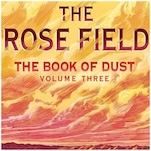How Manifest Succeeds Where Other Mystery-Box Sci-Fi Shows Have Failed
Photo Courtesy of Netflix
Editor’s Note: Some references to Manifest Season 4 spoilers are below.
Heading into the back half of its fourth and final season, Manifest has (ahem) manifested something plenty of high concept shows like it have failed to attain in the past: enough success to actually carry the story to a proper ending.
After proving a modest-enough hit at NBC for three seasons, the sci-fi-tinged mystery drama jumped to Netflix this season. In this super-sized final run of 20 episodes, it plans to wrap up the twisty story of a group of airplane passengers who vanished for five years then mysteriously returned—bringing with them visions (or “callings”) that lead them on various missions to help others and right wrongs from week to week.
It’s a simple enough premise when you write it on the back of a cocktail napkin, but across three-and-a-half seasons the mythology has gotten more expansive, with new players, factions, and reveals fleshing out the question of why they all vanished and why they all came back in the first place.
For ardent TV fans, Manifest is only the latest show in a long line of high concept network dramas aiming to capture the same type of buzzy, serialized magic that Lost bottled and turned into a cultural phenomenon all those years ago. We’ve had The Event, FlashForward, Terra Nova, Wayward Pines (which was actually fantastic in its first season), Touch, the V revival, Alcatraz, Revolution, and probably a dozen more I’m surely forgetting.
So what makes Manifest different from all those other big swings that were all axed after one season (or in a few rare cases, two seasons), all with more questions left hanging than answers? Namely, the fact that Manifest is still on TV, and will have a chance to wrap up its big ol’ mystery saga with a proper ending mapped out by creator and showrunner Jeff Rake.
Ironically enough, Manifest almost suffered the same fate as all those other shows that dared to ask some big and crazy questions (albeit after three seasons, but still). With ratings starting to slide, NBC pulled the plug on the show. But then a funny thing happened: those first three seasons dropped on Netflix, and Manifest became an overnight hit as millions of new fans were able to easily dig into the mystery of the death date and just WTF is up with Cal Stone a la an easy-to-digest binge format.
-

-

-

-

-

-

-

-

-

-

-

-

-

-

-

-

-

-

-

-

-

-

-

-

-

-

-

-

-

-

-

-

-

-

-

-

-

-

-

-








































